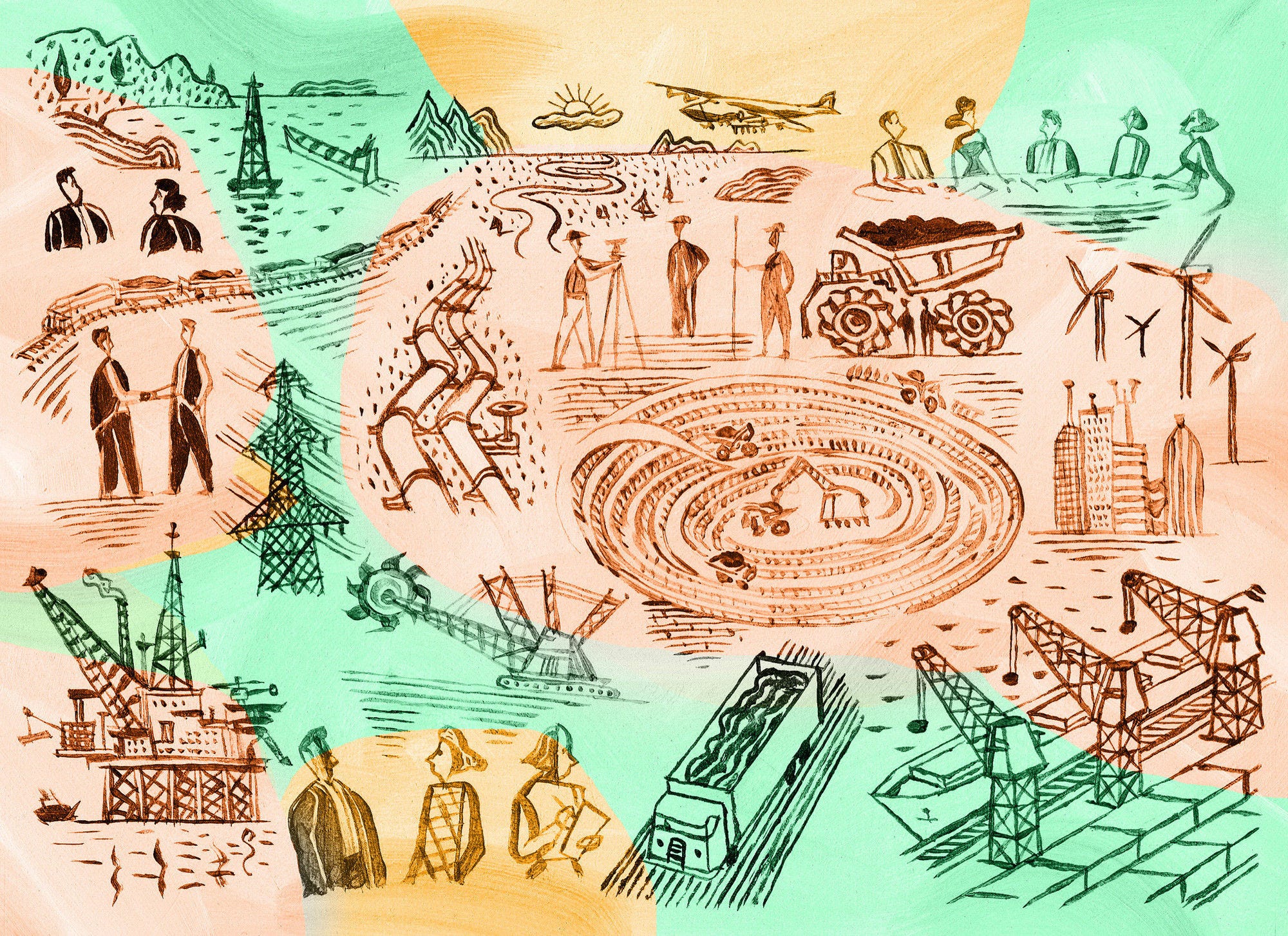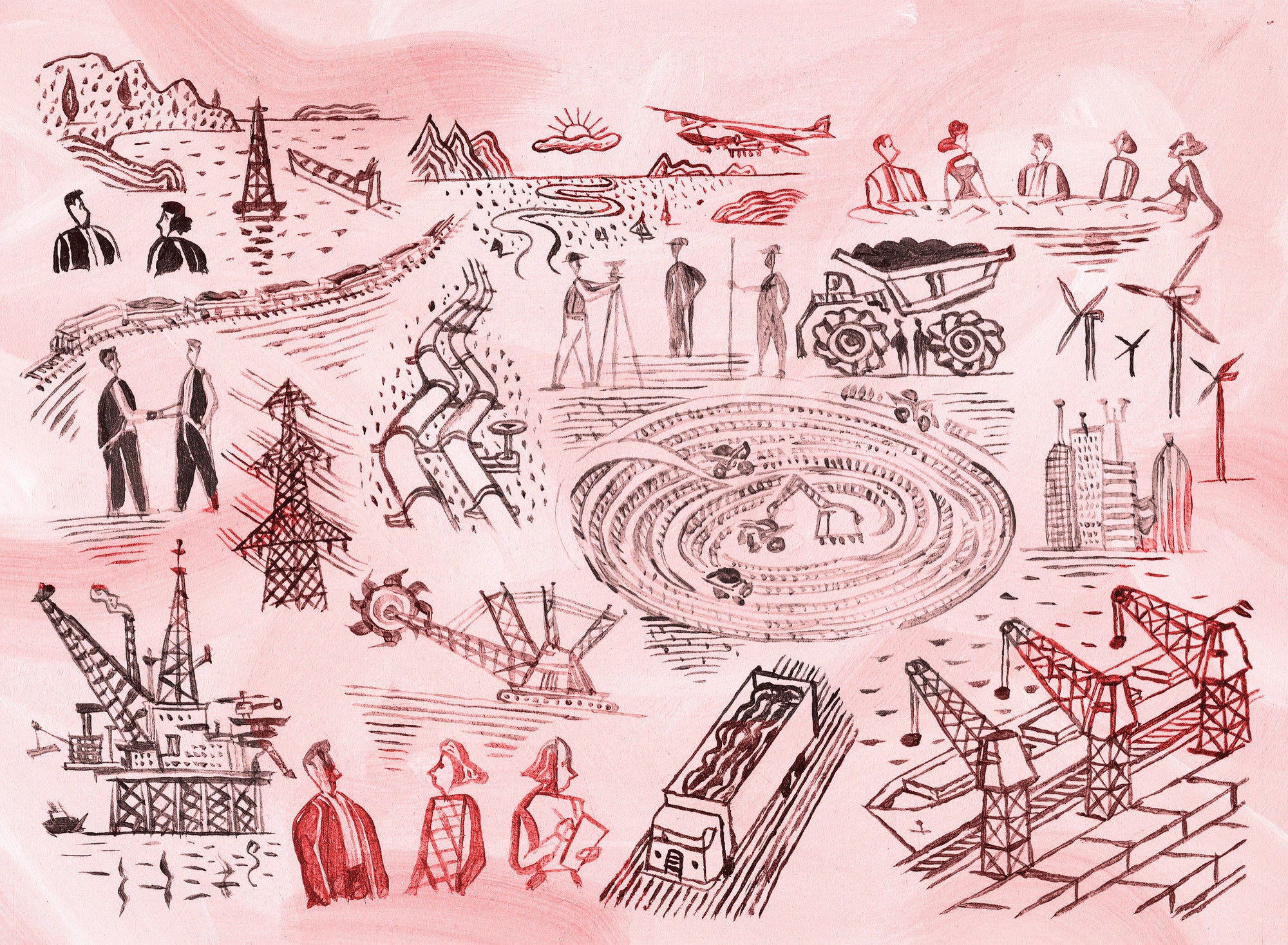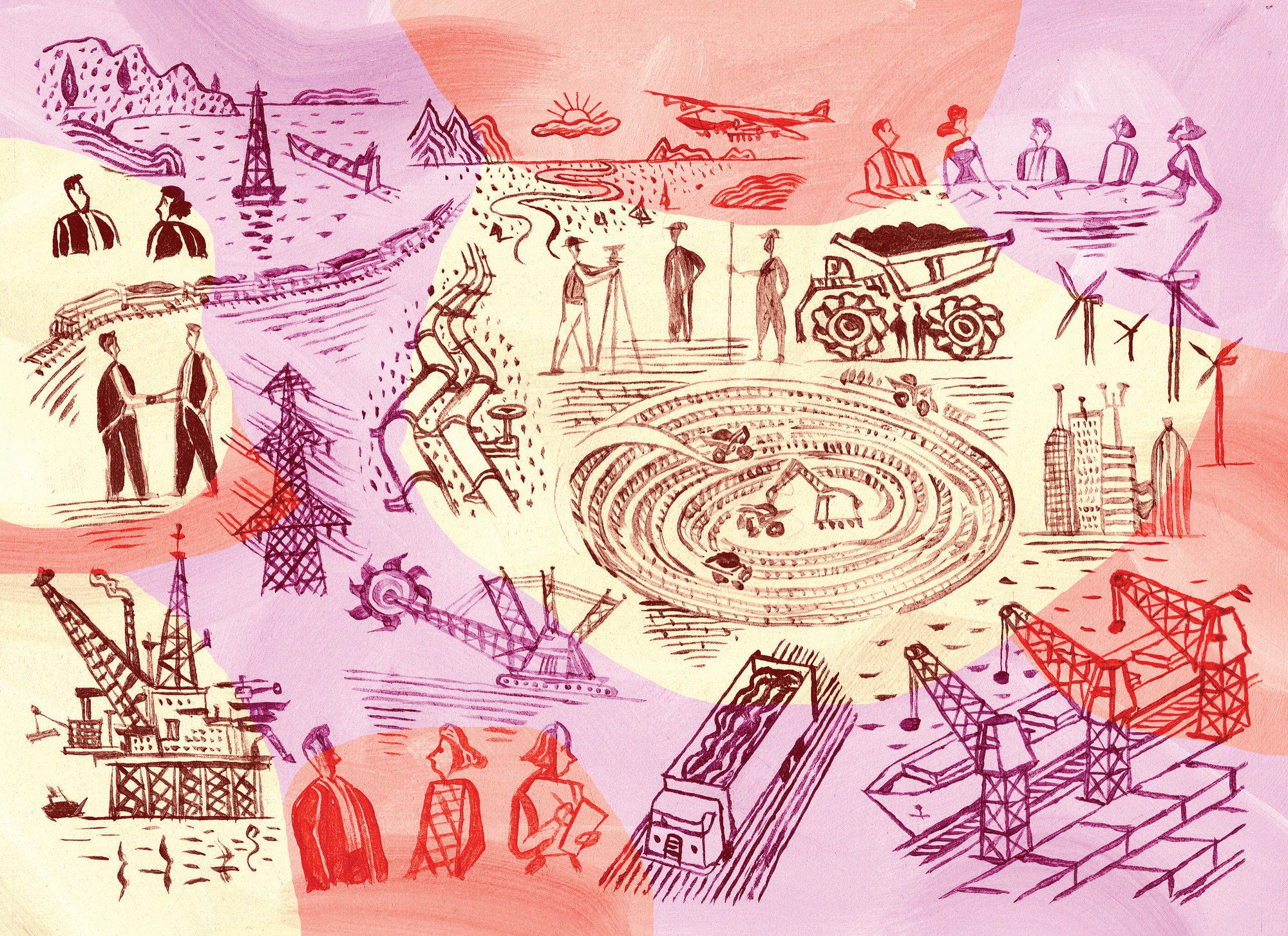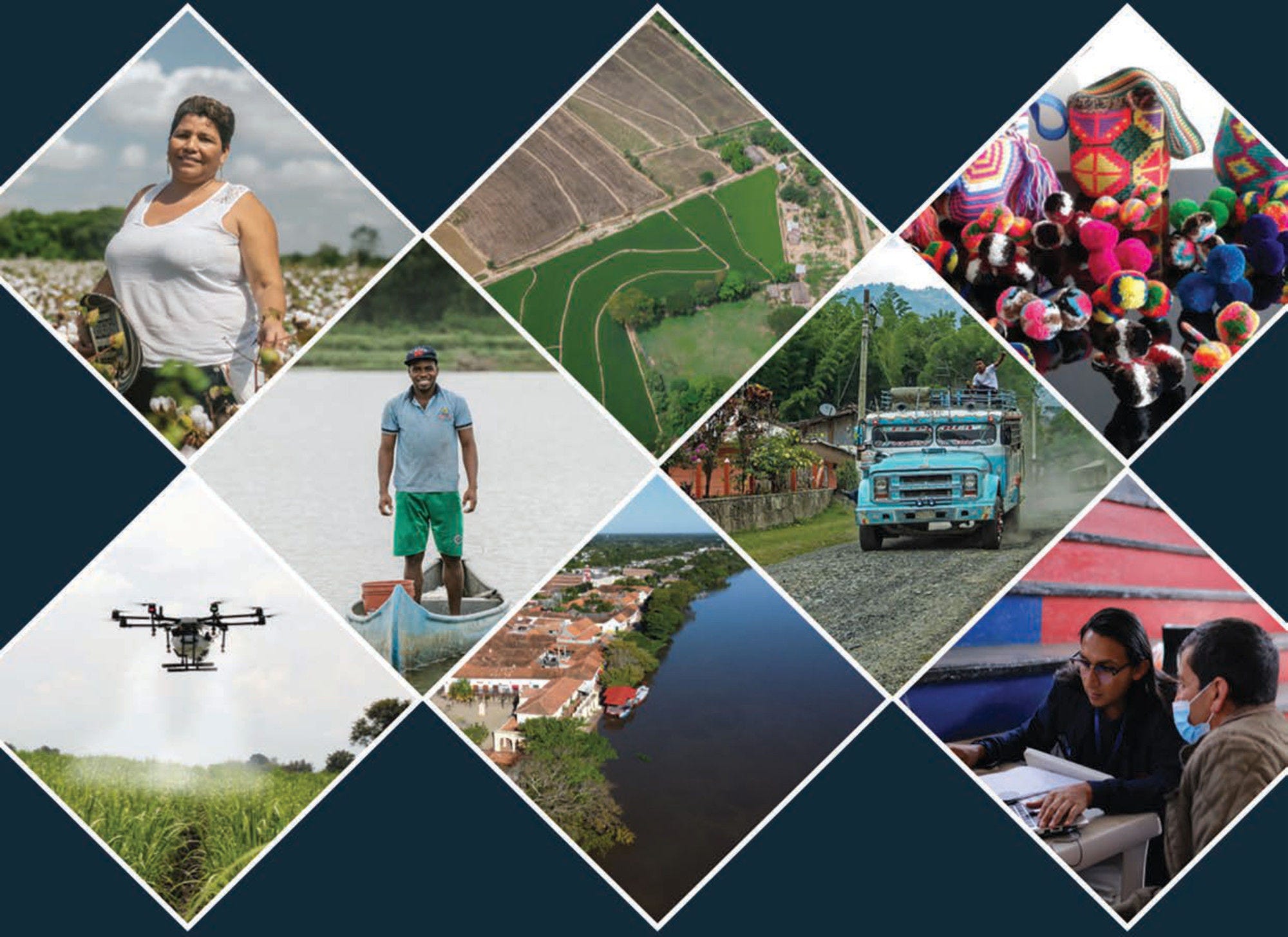Andalusia is the largest mining producer in Spain, the second-largest copper producer in the EU and a leader in marble and gypsum production. The region benefits from two distinct mining subsectors, each with a rich network of suppliers that are relevant for local development: the metallic mining sector (e.g. copper and zinc), which accounts for most of the regional mining production, and the non-metallic sector (ornamental rocks, aggregates and industrial minerals), which is highly dispersed across the territory. The regional mining value chain has the potential to leverage the increasing global and EU demand for sustainable raw materials and thus become a frontrunner in leading technologies and circular processes for environmentally sustainable mining. This study identifies how Andalusia can build on its strengths and address current and future challenges to improve regional productivity and well-being while accelerating the transition to a low-carbon economy and assisting EU climate goals.
Mining Regions and Cities Case of Andalusia, Spain

Abstract
Executive Summary
Assessment
Andalusia is a growing player in the European mining sector, with the potential to become a frontrunner in environmentally sustainable mining and to reduce its income and employment gap with the rest of Spain. Andalusia is the southernmost region of Spain, with the largest population and second-largest land area in the country. It is the lead mining region in Spain (38.6% of mining production), the second-largest copper producer in Europe and a leader in marble and cement production. The region’s location in the Iberian Pyrite Belt (IPB), encompassing Seville and Huelva through to Southern Portugal, represents a global asset when it comes to metallic minerals. Within the region, Huelva is the main mining (TL3) region, carrying out 70% of the region’s metallic mining.
Andalusia’s mining value chain can assist the EU in meeting its climate goals by 2050 while unlocking new business opportunities to create high-value-added jobs in the region. Andalusia hosts companies and activities at almost every stage of the mining value chain, from extractive to processing activities as well as technology and services providers. It benefits from two distinct mining subsectors, each with an extended supply chain. The metallic mining sector (copper and zinc) accounts for most of the regional mining production and is largely made up of large foreign-based companies. The non-metallic sector (ornamental rocks, aggregates and industrial minerals), by contrast, is highly dispersed across the territory and composed mainly of small-sized businesses.
Andalusia has a number of local assets that can help the region become a frontrunner in environmentally sustainable mining and open up new growth opportunities. These assets include attractive geology, a strategic geographic location among EU and non-EU markets (North Africa and Latin America), good infrastructure (reliable energy and sound transport infrastructure) and proximity of mines to urban centres that facilitate access to services and labour force. Furthermore, the region enjoys a mining identity with a young workforce that offers community support for mining ventures.
However, the region must overcome a number of existing bottlenecks in its mining value chain to fully leverage these assets and, in turn, boost productivity and reduce income and employment gaps with the rest of Spain. These include a low innovation intensity in the mining value chain, with insufficient linkages among types of firms and universities as well as a relatively low educational attainment of the labour force. In addition, a high share of the business in the mining ecosystem and its related industries are small- and medium-sized enterprises (SMEs) and entrepreneurs located in low-value-added activities. Furthermore, the region relies on a complex and unpredictable administrative process for mining based on outdated national regulation.
Addressing these challenges and mobilising assets will be vital to fully capitalise on the increasing global demand for minerals and the greater strategic European support for reliable access to sustainable raw materials. In particular, the EU Green Deal represents opportunities for Andalusia to become a frontrunner in resource circularity and environmentally sustainable mining. The national government can help attain these goals through a national mining (or mineral) strategy that unlocks synergies among regional mining clusters, whilst enabling the benefits to accrue to local communities. Furthermore, the new mining strategy of Andalusia is a unique opportunity to establish a clear and long-term vision for mining activities in the region and to strengthen the co‑ordination with other regional policies and international actors to attract investment and unlock innovative business opportunities.
Key recommendations
Mobilising the strengths of Andalusia’s mining ecosystem to increase competitiveness and attractiveness for firms and workers
For this, the regional government should:
Update and improve the accessibility of Andalusia’s geological information, in collaboration with the Geological and Mining Institute of Spain.
Facilitate and strengthen links with African and Latin American mining jurisdictions to become a gateway to and from the EU in sustainable mining processes and technologies.
Better integrate urban and infrastructure plans with mining development plans to improve the movement of goods and services for the mining sector as well as to avoid land use conflicts.
Make the most of the local mining identity and heritage to strengthen community acceptance and information on mining activities while enhancing the mining business ecosystem.
Addressing challenges for development in Andalusia’s mining ecosystem to unlock growth opportunities and assist the EU’s climate goals
For this, the regional government should:
Enhance innovation within Andalusia’s mining value chain to generate sustainable mineral transformation processes and technologies, by:
Promoting service innovation activities in the mining value chain. This involves providing capacity and networking support to upscale knowledge-intensive mining service providers and establishing a testbed for mining firms and service providers to co-create projects.
Boosting the role of the third sector to support mining innovation and entrepreneurship. This involves strengthening partnerships with universities to promote research and academic programmes on mining and acting as a broker to facilitate the creation of an institutional platform to conduct research and development (R&D) in mining.
Improving skills in Andalusia to prepare its workforce and youth population to meet the future needs of the mining industry. This involves boosting training programmes on environmentally sustainable mining activities in partnership with universities and industry associations as well as better involving youth in mining activities through a greater communication of employment opportunities in the mining sector.
Upscale and guide SMEs towards higher-value-added activities in order to increase resilience and offer stable sources of income in the local economy, by:
Strengthening regional technical support programmes for SMEs to improve networks with large mining companies, build capacity and promote the internationalisation of mining providers and small non-metallic mining firms.
Reducing further administrative obstacles for start-ups and SME growth.
Improve the regional mining regulatory framework and permit award process to enhance competitiveness and ensure environmental protection. This action requires close collaboration with the national government.
Actions for the regional government:
Establishing a formal co‑ordination mechanism within the regional government to evaluate and deal with administrative processes for mining (e.g. a one-stop-shop, a single decision-making body or a branch in the Project Accelerator Unit).
Creating specific programmes to train government staff and provide digital solutions to improve mining administrative processes.
Setting clear administrative timelines to deal with applications for new and expanded mining projects, including times for environmental evaluations.
Actions for the national government:
Updating the national mining regulatory framework to make it more efficient and better integrated with other sectoral regulations, including environmental regulations and land use planning.
Improving national co‑ordination on mining to help attain EU strategic goals and support national and regional development and well-being
For this, the Spanish national government should:
Develop a national strategy on raw materials or mining. This strategy should build on the ongoing process of developing the road map for the sustainable management of raw materials.
Improve the financial and institutional capacity of the Geological and Mining Institute to help co‑ordinate the national mining strategy and boost its research and exploration activities.
Strengthening Andalusia’s 2021-27 mining strategy to make the regional mining value chain a frontrunner in environmentally sustainable mining and an engine to increase income and well-being
For this, the regional government should:
Define a unified vision of the role of mining for regional development by agreeing on a clear goal for mining development in the updated mining strategy and enhancing the mining brand in the region.
Establish concrete objectives with measurable targets and a timeframe of actions in the mining strategy.
Strengthen the monitoring framework of the new mining strategy by differentiating between outcome and output indicators and developing horizontal indicators.
Improve the involvement of municipal governments and local communities in the mining strategy.
Unlock synergies with other regional policy strategies and promote local networks to support a regional mining cluster based on innovation.
Boost collaboration with Spanish and Portuguese mining regions, and with EU mining initiatives, to promote joint mining projects, enhance knowledge and funding access.
In the same series
Related publications
-
 21 November 2024
21 November 2024 -
 11 October 2024
11 October 2024











